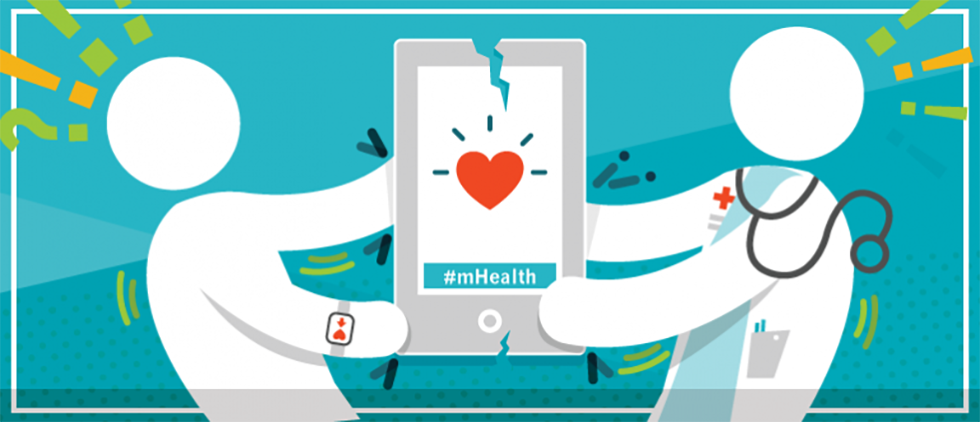Adoption of Digital Health and #mHealth: Where Do Consumers, Providers and Payers Stand?

Arguably, outside the Affordable Care Act (ACA), two of the most talked about healthcare trends are consumerism and technology. However, as Fierce Health IT recently pointed out, consumers and providers are not on the same page when it comes to digital health.
In its article, Fierce Health IT reported that “consumers were far more enthusiastic about [new health technologies] than their provider counterparts,” citing a Scripps Health study published here in the Journal of Medical Internet Research. Data points from Scripps include:
- 40% of consumers (vs. 14% of providers) were “OK with using technology for self-diagnosis of non-life threatening medical conditions.”
- Only 16% of consumers (vs. 28% of providers) “expressed apprehension about consumer use of technology for self-diagnoses.”
It’s fairly easy to explain the discrepancy: more empowered consumers have become used to having information at their fingertips, but doctors (for obvious reasons) must remain vigilant about the utility and validity of the data. In a recent interview, Scripps Translational Science Institute Director Eric Topol describes the dynamic first the consumer side:
“People like feeling like they are in control by having their own information, generating it and seeing it—the average person looks at their smartphone 100 to 150 times a day. They are in constant touch with what is going on. . . . We have things like wearable sensors and other ways to capture data that we did not have before. We made this big transition from the Fitbit fitness era to now the medical side of capturing information. . . . Previously, this was just about electronic health records and health information systems and hospitals. Now we’re talking about consumer-level mega expansion.”
Topol, who is also author of a new book, The Patient Will See You Now: The Future of Medicine is in Your Hands, addresses the provider side, as well, stressing incorporation of data from devices and wearables into existing doctor-patient relationships:
“Certainly this is not about treating oneself. This is more about acquiring diagnostic or monitoring data and still having an intimate relationship with a doctor to help guide the appropriate treatment.”
Equally interesting in the Scripps data were findings related to privacy, data security and ownership of information, including medical records, as cited in Fierce Health IT:
- “Consumers (42 %) were more worried about privacy and security than providers (35%).”
- “43% of providers thought they ‘owned’ their patients’ medical records, while nearly 54% of patients believed they owned their own health records.”
While patients and doctors work on their relationships with healthcare data, insurers are working out some of their own issues with technology. Whether through online cost and price transparency tools, new mobile apps or other initiatives, payers are figuring out how to use technology to improve products and customer service for the same very compelling reason: it’s what consumers have come to expect.
The good news is that consumers, physicians and insurers know that healthcare is more than just gadgets and gizmos, and some very good things are happening at the intersection of consumer-focused technology and healthcare (take telemedicine, for example).
Insurers sit at that same intersection not only for the reasons mentioned above (and in our video) but also because of their unique role. As they deliver the benefits that allow members to seek and pay for healthcare, payers must maintain relationships with both physicians and consumers. As a result, payers must be aware of expectations and sentiments on each side, along with managing and growing the technology consumers want from their insurance companies.









